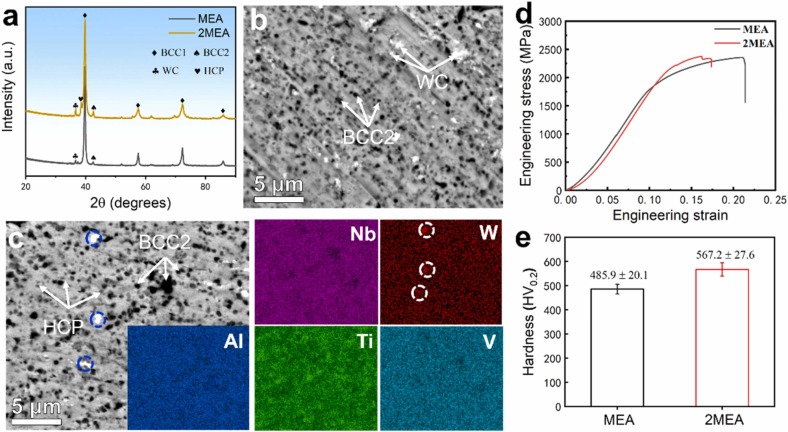Abstract
Critical applications in aerospace, nuclear, and high-temperature industrial sectors demand metal-matrix selflubricating materials that maintain stable tribological performance under extreme conditions. However, conventional solid lubricants suffer from inherent low strength and thermal instability. Here this work demonstrates a new type of friction-induced chemical transformation in TiVNbAlx-WC (x = 0, 0.2) composites that creates adaptive lubrication through in-situ formation of high-entropy MAX phases and their delamination into selforganizing 2D layered tribo-films during sliding at 600 degrees C. WC particles undergo thermal decomposition at 600 degrees C, releasing carbon atoms that react with the Ti-V-Nb matrix to nucleate MAX phases. Sliding-induced stress gradients promote mechanochemical delamination, transforming bulk MAX phases into 2D layered structures. The resulting 2D tribo-films maintain friction coefficients of 0.38 at 600 degrees C. This approach demonstrates how compositional engineering can harness extreme tribological conditions to generate beneficial surface chemistry, transforming operational limitations into performance enablers.

Keywords Plus:MECHANICAL-PROPERTIES,WEAR,MAX
Published in TRIBOLOGY INTERNATIONAL,Volume214;10.1016/j.triboint.2025.111222,FEB 2026


